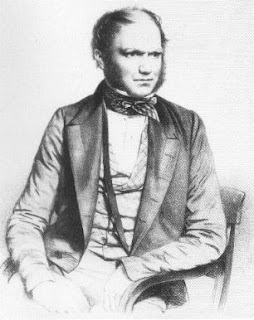Who am I supposed to root for?
 |  |
Christian Bale's lame Batman | Heath Ledger's totally awesome Joker |
I have a few confessions to make:
First of all, although I am a huge fan of comics, graphic novels, manga, or whatever pretty marketing terms are used to sell sequential art, I am largely ambiguous about superhero stories. I didn't like them as a child, when I preferred the exciting adventures of Donald Duck and his relatives in Disney comics. I didn't like them as a preteen and adolescent, when the extent of my comics reading were the G.I. Joe comic titles. My friends would be reading X-Men and telling me the storylines, and all I could think of was how overly complex and silly they sounded.
Part of this stems from the nature of the media properties involved. When dealing with the two biggest American comics publishers, DC and Marvel, their most iconic characters may have up to seventy years of history, backstory, continuity and character development behind them. When you have well-detailed fictional worlds and settings in other media, they tend to ultimately be the brainchild of one man or woman: J.R.R. Tolkien, Joss Whedon, Frank Herbert, George Lucas, Tamora Pierce, Michael Moorcock. Even if other creators end up using the properties, the original rights tend to remain under the master's control--or at the very least, retain his or her original vision.
This isn't the case with superheroes. I would go so far to state that superheroes are not literary characters. They are mythic icons. Every generation and every writer has grafted their own take on these characters. In ancient Greece and Rome, every contemporary writer was aware of the same pantheon of gods and heroes and the same tales of their exploits, but each could reinterpret the details to fit his agenda.
Take, for example, the tale of how Hephaestus caught Aphrodite and Ares in a compromising position: Hephaestus, the club-footed, ugly god of blacksmiths and the forge, crafted so many fine instruments for the other gods that his father Zeus gave Aphrodite, the beautiful love goddess, to him as his bride. Aphrodite clearly detested this arrangment and soon began an affair with the war god Ares. Hephaestus learned of his wife's adultery from the sun god Apollo, and devised a clever trap under his wife's bed. The next time she and her lover had an amorous encounter, the net caught and held them both until Hephaestus could summon all the other gods and make the affair public.
Now, in
The Odyssey, Homer uses this tale to demonstrate the cunning of Hephaestus to expose his wife's infidelity. But the Roman poet Ovid, in the
Art of Love, uses this story to a different end. He contends that the other gods did not flock to Hephaestus' side, and in fact some came away from the scene with a newfound appreciation for Ares' skill in the boudoir. Ovid takes from the myth a different (almost Victorian) moral: if you learn your wife has been unfaithful, keep it secret. For if you expose her infidelity, she will now be open about what was hidden before, and
you look like the fool.
Similarly, superhero characters are constantly re-evaluated for their time. Captain America started out as a moral crusader against the Nazis (over a year before the United States even entered World War II). During the Nixon era, Captain America would take umbrage at the corruption permeating the US government and hangs up his tights, becoming the wandering vigilante Nomad. A succession of government stooges take up the mantle of Captain America until Steve Rogers is shown he can support America's ideals without supporting its government, and he puts on the red, white and blue cowl again. Ultimate Captain America, a reimagining of the character for the post-9/11 world, was a two-dimensional strawman of neoconservative ideology, and despised by many longterm fans. While in the current Marvel continuity, Captain America launched a guerilla war against the forces of his government (led by long-time comrade, Iron Man) in opposition to a superhero registration act, and was assassinated in the aftermath. (I suspect Captain America will make a miraculous recovery in time for his live-action film due out next year.) Likewise, Superman's arch-nemesis Lex Luthor has evolved to represent the bogeymen of contemporary society: a mad scientist in the pulp and atomic era, a corrupt corporate raider in the 80s and 90s, and a power-hungry corrupt politician in the "President Luthor" stories of the early '00s.
I must confess my favourite superhero stories are those that deconstruct the genre; that attempt to show superheroes not as larger than life, ascended beings, but as people with hopes and fears and dreams and failings. These types of story became incredibly popular in the mid-80s due to two publications:
Watchmen and
The Dark Knight Returns. The former is continually cited as one of the best comic books ever written, and will be the subject of a live-action film due out soon (I'll discuss my feelings about that at a later date). The latter was a dark, social commentary on the politics of the day that set the tone for the Batman character from then on (no more campy 60s Adam West Batman--though to be fair, several writers of Batman in the 70s were already trending this way). Both masterpieces; both having the unfortunate consequence of ushering in a slew of "dark", "edgy" and "gritty" comics, most of which cashed in on the superficial sex, violence and corruption of Moore and Miller with very little of their depth, humanity or social commentary. Though this
Dark Age dominated comics for most of the late 80s up to the mid 90s (and probably represented 90% of the output of Image Comics), some good deconstructions of superheroes came out of it. One of my favourites was Warren Ellis'
The Authority, the comic that casts aside all those centre-right status quo supporting superheroes of yore in favour of a take-no-prisoners group of leftist anarchists who regularly execute dictators, rebuild destroyed cities, resettle refugees, and spit in the face of the military-industrial complex.
Like
Queen Azura, I saw the new Batman film,
The Dark Knight, recently. I had mixed feelings about it. It was very long. Heath Ledger was fantastic as The Joker, even if his plans were extremely Byzantine and over-the-top (I think I know why gas prices are so high in Gotham--the Joker keeps stockpiling hundreds of gallons in abandoned warehouses and ferry boats). Most of the minor characters (Lt. Gordon, Harvey Dent, Alfred, Rachel Daws, Lucien Fox) were well portrayed--in fact, most of the movie's best moments are when Batman isn't on screen.
The movie had the effect of reminding me of all the reasons I dislike the Batman character while barely displaying the few elements of the character I find appealing. A disturbing trend I find in many comics, and one of my main reasons for disliking superhero comics, is the nature of their enemies. Your typical superhero spends a few panels beating up on petty, blue-collar criminals before tussling with other weirdos in spandex. Superheroes beat down on burglars, muggers, purse-snatchers, rapists, drug-dealers, and gangbangers with regularity. Sure, these guys are criminals and it's a good thing they're off the streets. But invariably the comics reinforce two things about crime:
- Criminals are bad people who have no other motivations for their actions.
- Criminals are the cause of crime, not symptoms of society's failings.
In other words, costumed heroes beat up a lot of thieves and murderers, but never seem to address the environments that produce most criminal activity:
- Poverty
- Family Dysfunction
- Lack of Education
- Lack of Social Services
- Low Self-Esteem
- Racism
- Lack of Mental Health Treatment
The implied racism is palpable in the various mobs and gangs that prey on Gotham's streets. The Italian mobsters of
Batman Begins have been joined in
The Dark Knight by blacks, Russians and Hispanics, all brokering their services to Hollywood's bogeyman
du jour--that's right, the
Yellow Peril has returned!--the evil Chinese businessman. This plot was loosely borrowed from the Batman comics storyline
"Batman: Evolution", a series that angered me professionally as well (but which I'll discuss some other time).
As an aside, in the "Introduction" to Volume 1 of the
League of Extraordinary Gentlemen graphic novels, Alan Moore writes in a parody of the late 19th century prose he apes throughout the books. One of his "important lessons" to "young English boys" is to remember that "the Chinese are brilliant, but evil", in a sendup of the Yellow Peril stereotypes of the day. And sadly, it appears our day as well.
Now, the saving grace of the Batman character in my mind is he's supposed to be the hero who thinks. Other heroes charge headlong into confrontation, but the Dark Knight thoughtfully puzzles out the situation before taking on his foe directly. Although like most heroes Batman spends a lot of time reacting to villainous plots, he's a lot more
proactive in getting things done as well, though sometimes this is
taken to extreme levels. The reason the Joker is Batman's nemesis is precisely because his chaotic, unpredictable behaviour resists Batman's efforts to catalogue, quantify and predict everything.
The
review at Salon.com sums it up for me:
And it's Batman's mind that's at the core of the best stories about him. He's infinitely dangerous because he's infinitely clever: There's a sequence I still remember vividly from a decade-old Justice League story in which he holds off an invading alien fleet with nothing more than a box of matches and a brilliant plan. One disappointing thing about Nolan's interpretation is that his Batman is basically just a growling James Bond -- he relies on super-expensive gadgets and can beat down anyone in a fight, but any number of action-movie badasses can do that. We never see "The Dark Knight's" Batman doing anything particularly thoughtful, which is a hallmark of the comic book Batman. Not for nothing has he starred in a series called "Detective Comics" for close to 70 years.




.jpg)





